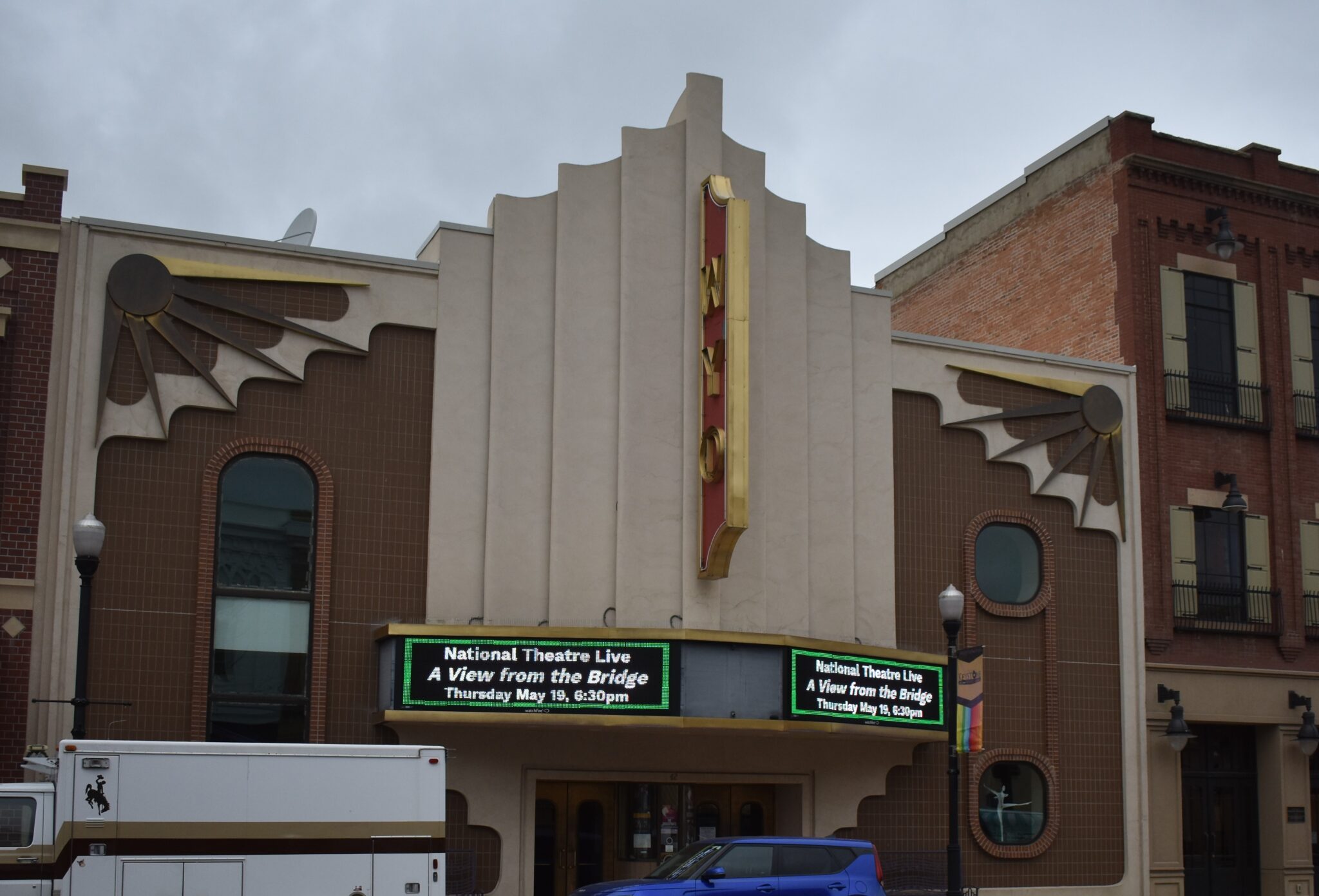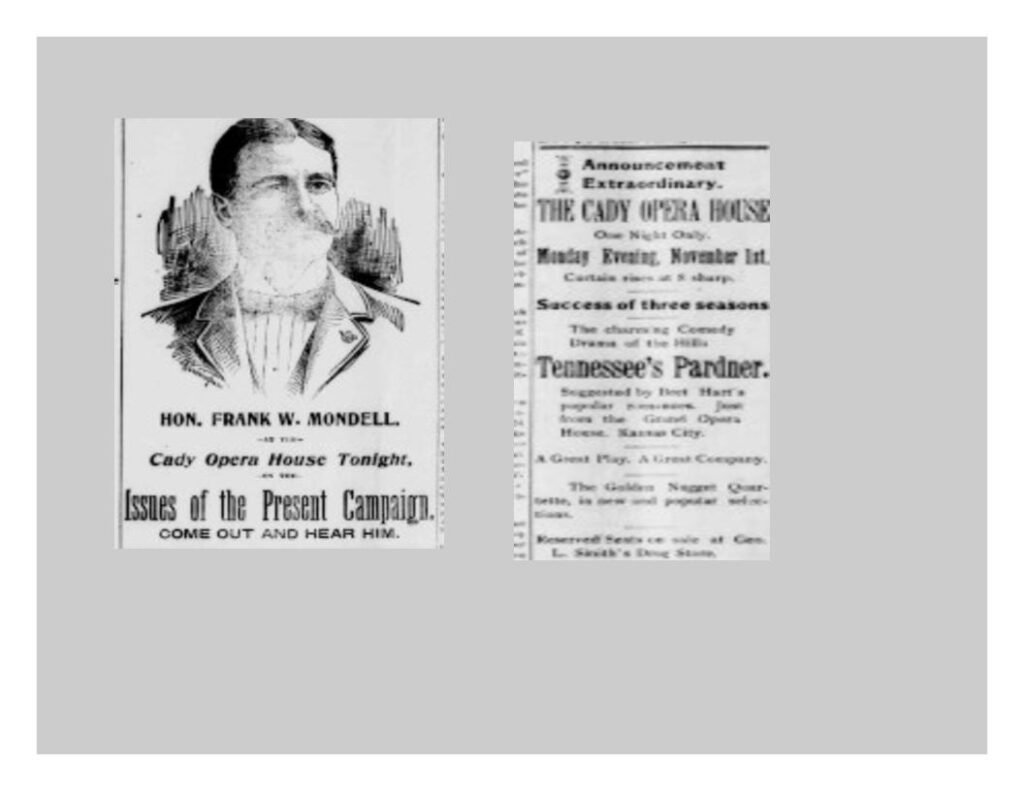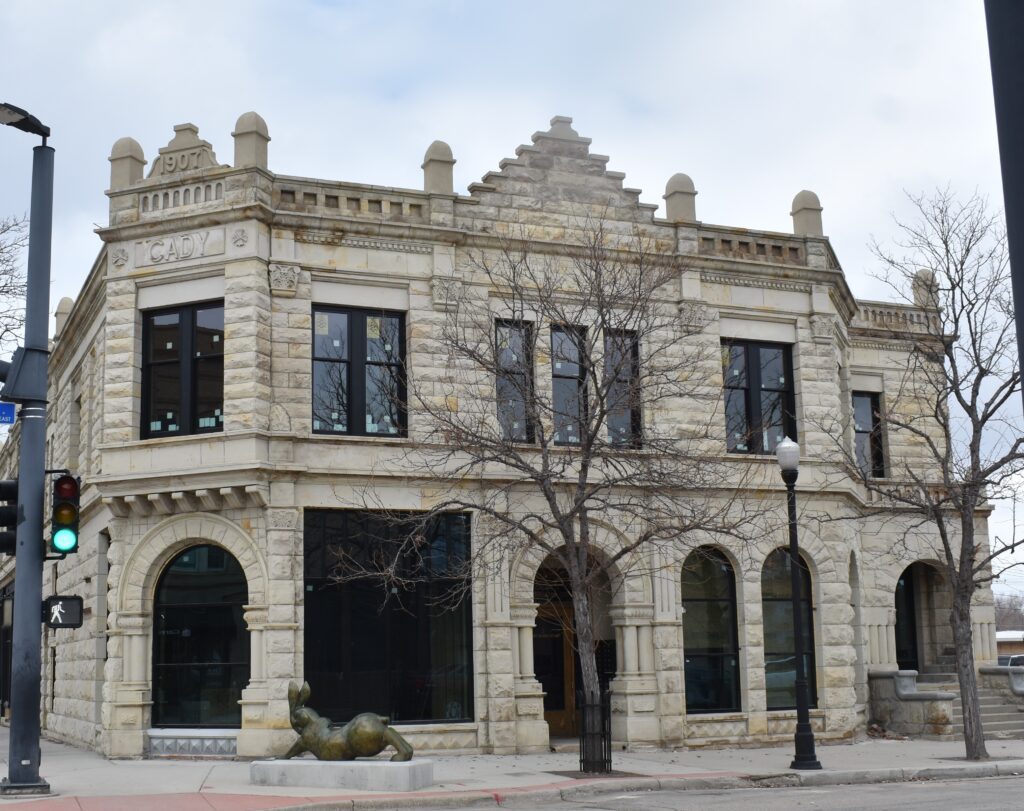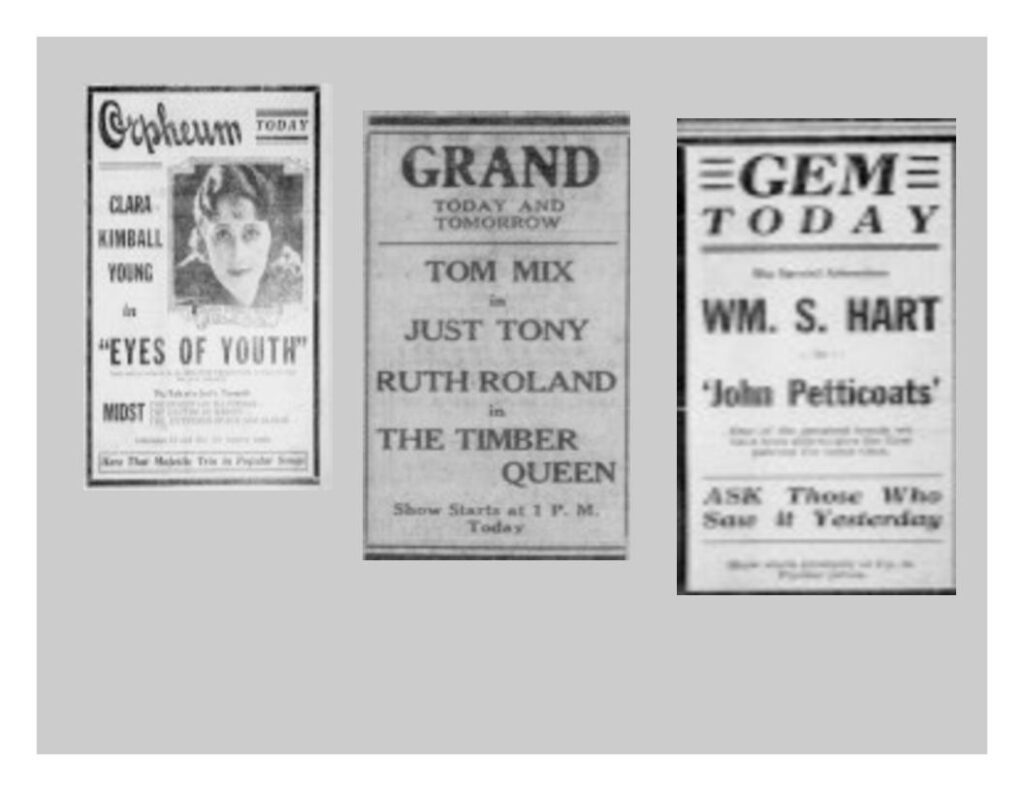News
The Lotus Theatre Opened 100 Years ago this Month.

On July 5th, 1923, these two short articles appeared in the Buffalo Bulletin newspaper – The new Lotus Theatre of Sheridan held its opening performance on last Saturday night, with a good picture, vaudeville attractions and music by a fifteen-piece orchestra. Mr. James Young, son of Richie Young of Buffalo, and Mr. Fred Bezold are the proprietors of this new show.
M. M. Young and son Richard drove to Sheridan last Friday evening for the opening of the new Lotus Theatre. They made the trip over in a little over an hour.
According to Cynde Georgen’s book, “Snippets of Sheridan County History,” (2013 by the Sheridan Historical Society) The Lotus Theatre, now the WYO, opened in 1923 it was proclaimed as “Wyoming’s Wonder” and was billed as the state’s “grandest, greatest and biggest theater.” The exotic setting included live flower gardens, canaries and tropical fish, as well as a state of the art movie projector.
Today we have movies and television and we can watch movies on our laptop computers and our cell phones. However, in 1921, motion pictures were a fairly new phenomenon, and one that not everyone embraced. Some people even felt that motion pictures would lead to society’s moral decline.
From The Laramie Republican, February 11, 1916 – Dr. Cyrus T. Brady Defends Motion Pictures in the hearing before the house committee on education at Washington, D. C. on January 13th looking to national censoring of motion pictures.
Dr. Cyrus T. Brady nearly convulsed his audience by his opening statement “I have listened,” he said, with well simulated solemnity, “to representatives of twenty million mothers, of the same number of fathers, of twenty million children, of thirty-five million or thereabouts of women, and of the representatives of all of the Protestant denominations of the country. I tell you it makes, me feel very lonely There is no one left to be represented by me, and thus I am reduced to the necessity of representing nobody but myself.
“There are many reasons why I oppose this bill. Here is one of them; the church in this country and in other countries as well have never succeeded in entirely ridding itself of the hope that the state will come to its aid and force people to be good. It cannot be done. If your churches are losing their congregations and if your congregations prefer to go to the moving picture theater rather than to the church, don’t you think there is something wrong with the church?
“People cannot be made righteous by law. When you talk of censorship of motion pictures and of the need of keeping children away, isn’t it a fact that there are lots of books and lots of newspapers which you and I are safe in reading, and perhaps, ought to read, but which we would not care to put into the hands of our children. That, gentlemen of this committee, is true of even the Bible. There are passages in the Bible which I would not want my children to read. I tell you that this proposed censorship of motion pictures is a distinct discrimination against the poor man. The motion picture is the poor man’s grand opera; it is the poor man’s motor car, and the poor man’s trip to Europe.
Can any of you men on this committee name five grand operas which, under your proposed law, would be safe from the sensor? Take the story of ‘Carmen.’ We have read the novel, we have seen and heard the opera, and we fail to be shocked, but the moment ‘Carmen’ was put into motion pictures we censored it. I tell you the motion pictures have done more good than many of the churches.”
At this point Mrs. W. F. Crafts, the wife of the reformer, looked straight at Dr. Brady, and shook her head most vigorously, giving a weird effect to a most remarkable hat. Dr. Brady noticed the action, and, waving his arms at her, he said, amidst shouts of laughter: “Go shake your head to your heart’s content; It will never make the slightest difference to me.” Dr. Brady closed with a most powerful peroration against the federal censorship bill. It was after 11 o’clock before the hearing was brought to a close.
One argument against movies was that movies would replace libraries.
This from the Wyoming State Tribune, August 28, 1921 – Screen Star Asserts Film Dramas Encourage Reading of Books and Have Stimulating Moral Influence. Are the motion pictures taking the place of reading? This question has come up in a number of debates. It is frequently the subject of casual conversation, and at times has been given consideration when bills affecting motion pictures were up for legislative treatment.
Anita Stewart, international screen favorite and star of Louis B. Mayer- “First National!” releases, is of the opinion that motion pictures stimulate rather than supplant reading. Miss Stewart, who recently arrived in New York on a vacation, following completion of “A Question of Honor,” says, “I believe that the entertainment offered by the screen represents an individual and distinct form of recreation in the lives of the majority of the people. Its attraction is as separated from reading as it is from the opera or golf. Being a natural amusement, it simply fitted into the order of life without displacing any other kind of recreation.
“In my opinion, motion pictures have stimulated reading by stirring up the imagination and arousing an interest in the lives, habits and problems of others. Many books have proven greater sellers after they were pictured in films than before.
“People whose interests centered chiefly within the four walls of their homes were awakened to an Interest in the outside world through the screen. With the films as a wedge, books soon found their way into previously bookless places. Motion pictures have closed saloons, gambling houses and poolrooms in hundreds of cities, but never libraries.

The Lotus not only had motion pictures and other shows, but it hosted Santa in 1923, much as the WYO does during the Christmas Stroll each year. This from the Sheridan Post-Enterprise, December 24, 1923 –
Come on, Kids! Free Show Free Show—with apples, oranges, candy and popcorn—that’s what’s in store for Sheridan kiddies here Christmas morning. The Post-Enterprise, Harry Palmer and C. E. Carr of the Basket Stores, and Fred E. Bezold of the Lotus Theater, are going to be hosts to every kid under 12 years of age in Sheridan at the Lotus Theater at 10:30 o’clock Tuesday morning. Santa Claus will be on hand with reindeer and his sack full of presents.
Nat Hilt and Bill Sopris will assist Santa at the Christmas tree on the theater stage. Mr. Palmer and Mr. Carr are in charge of the arrangements for Santa Claus coming. Children can be left at the show conveniently to have a good time until morning church services end.
The Post-Enterprise’s motto is ’’Let no man starve on Christmas Day.” Accordingly, any man. woman or child who will be at The Post- Enterprise building at noon Christmas day will get a square meal. Attention is called to the fact that The Post-Enterprise runs “work wanted” classified advertisements without charge. Anyone out of work can obtain a free classified advertisement by applying at the office.
The Lotus was not the only theater in Sheridan during the early 1900s. The Cady Opera House, on the third floor of the Helvey Hotel in the Cady Building, was built in 1893, but the third floor, where the theater was located, burned in 1906 and was never rebuilt.

The Sheridan Post, October 8, 1896, and October 28, 1897

There was also the Gem Theater, the Grand and the Orpheum.

The Sheridan Post, April 13, 1920, and December 2, 1923
One movie the Lotus brought to Sheridan in 1923 was The Virginian. This from Sheridan Post-Enterprise, December 18, 1923 – Wyoming as She Was Portrayed in Filming Wister’s “Virginian” “Wyoming as she was in them days,” is how one old timer characterized Owen Wister’s story “The Virginian” which was one of the first and most successful of western novels.
The story has its setting in southern Wyoming during the time of the “Cattleman’s War.” The book itself has for years been one of the best sellers among western stories and has been dramatized by several companies as a stage play. It has now, inevitably of course, been again reproduced on the silver screen’. The film version of the story is being brought to the Lotus theater for a three-day run beginning Tuesday. It is said that William Hawley, pioneer mayor of Casper, helped in the direction of the film play and in the rebuilding of the reproduction of the town of Casper as it was at the time of the story.

Today, Lotus building is still there. During the 1930s it was called the Fox Lotus, and in 1941 it was renamed the WYO. Over the years, it has been refurbished and enlarged, and it is now mostly a venue for many different events and shows. At one time it was the main movie theater in Sheridan, and it still shows a limited number of motion pictures, but the main movie theater is the Centennial.
Today, movies are commonplace and an accepted form of entertainment. But, 100 years ago movies were a new phenomenon, and the Lotus brought movies and other entertainment to the people of Sheridan.

